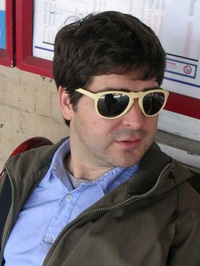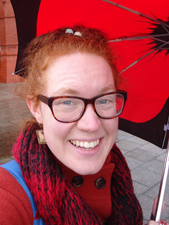To Stand Out Is Critical: Megan Welsh in Conversation with Evan Jones

Malahat volunteer Megan Welsh talks with Long Poem Prize judge Evan Jones about the value of the long poem and writing contests, and what he's looking for in a winning entry.
You're currently living in England. How do you stay in touch with Canada and more particularly, for our purposes today, with Canadian poetry? And while it's a bit of a cliché question, I'm interested in your thought: as someone on Twitter, do you think the internet helps or hinders you staying in touch with Canadian writing communities?
I try to follow when I can what’s happening in the literary journals: they are and always have been the great thermometer of Canadian poetry. The books I look for when I’m in Canada are always by those whose work I’ve read in the journals. I follow a couple of online journals—not many and mostly those which have a paper starting place. I find that, because there’s no cost except for cheap old time, the investment just isn’t there with most online journals.
As for the internet helping or hindering, well, I’ve seen a great many poets rise to fame on the strength of their blogging skills and ability to attract hits rather than the success of their writing. So many are surprised that likes and retweets do not equate to book sales. And there’s another factor no one wants to talk about: a book may languish on a shelf, but code becomes obsolete quickly. The internet is not backwards compatible. A book is.
Following these thoughts on writing communities, have you judged in poetry competitions before? What do you find most challenging about such an undertaking, and oppositely, what are the rewarding moments for you, as a critical reader?
I have judged a poetry competition or two. What I like best about the experience is that the winner is always a surprise. Whether judging alongside others or not, the range and variety of poetries right now always undermines preconceived notions and tastes. That’s a thrill, in its way, and a discovery. The challenge is the disappointing fact that not all poems can win a prize. What if there are two or three poems that have equal yet different strength? More and more as a critic and writer, I think that the idea of the one great thing—the best book of the year, the best poem—is not useful. Yes, some books, some poets, some poems will stand out. But to stand out is to push something else, someone else aside. To stand is always critical.
Having worked in long-form poetry, what elements—emotional? mechanical?—do you think will draw your attention in this year's submissions? What draws you to the long poem in your own writing?
I’m looking to be surprised. By that, I don’t mean I’m looking for something new so much as variety. A long poem must be various—in its form, concerns, hopes, outcomes. That attracts me most of all, as both reader and writer.
Young writers (age- or career-wise) may be intimidated by a contest's longstanding reputation or the entry fee, if money is short, even considering the potential benefits (the push to complete a project, experience, the exposure that comes with success). What role do you think competitions can and/or should play in writers' lives and works?
When my writing appears in a journal or magazine—among writers I admire—I feel like I’ve won a competition! And there may be no money involved at all. In a sense, every writer has a goal in mind, publication a kind of victory. The poetry competition is best discussed in that light: a kind of victory but not the be-all and end-all.

Megan Welsh
* * * * * * * *









